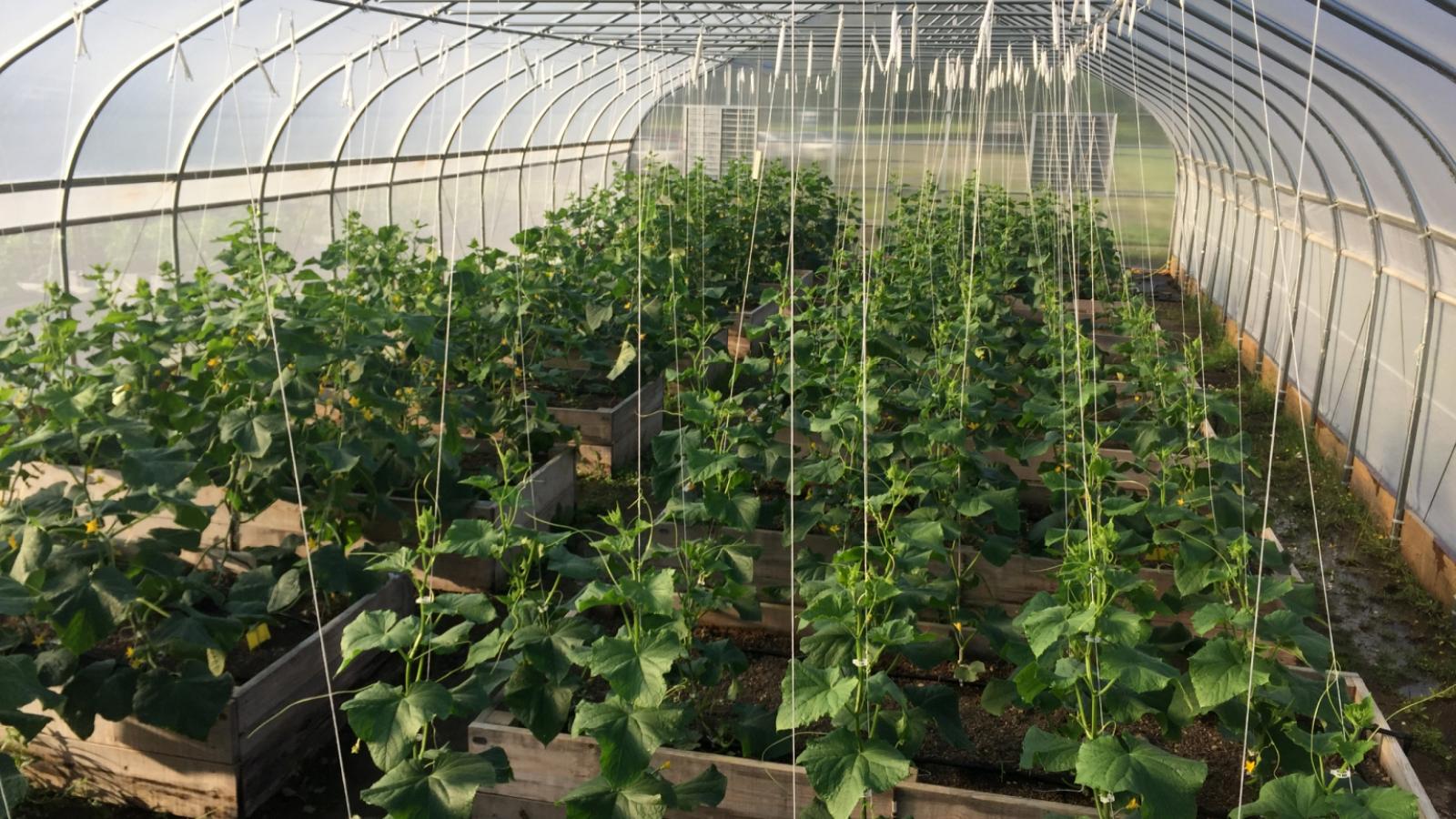Ohio State-Mansfield Microfarm
One way that the Environmental History Initiative is not just exploring the past—but, rather, transforming the future—is The Ohio State University-Mansfield Microfarm project. Associate professor of environmental history, Kip Curtis, envisioned a community-led food system intervention that combined ecological and social justice initiatives. Planning began in 2016 before Curtis leveraged community-university partnerships into a $2 million pilot project in 2018. The project helped develop sustainable regional agriculture on an economically viable scale by providing food for Richland County residents, farmer's markets, restaurants, and regional institutions. It has become a catalyst for change in Mansfield and garnered the esteem of elected officials, like Ohio Senator Sherrod Brown, who visited the site in 2021.
The microfarm project has grown from humble beginnings into a prominent feature of the landscape in Mansfield. Today, Curtis maintains the demonstration urban microfarm constructed on a parking lot on the Ohio State-Mansfield campus. Equipped with a series of indoor and outdoor plots, this farm supplies food for the Ohio State-Mansfield campus cafeteria, the campus community, and for the Richland Gro-Op Cooperative.
For more questions about the microfarm project or to get involved, reach out to Dr. Kip Curtis.

